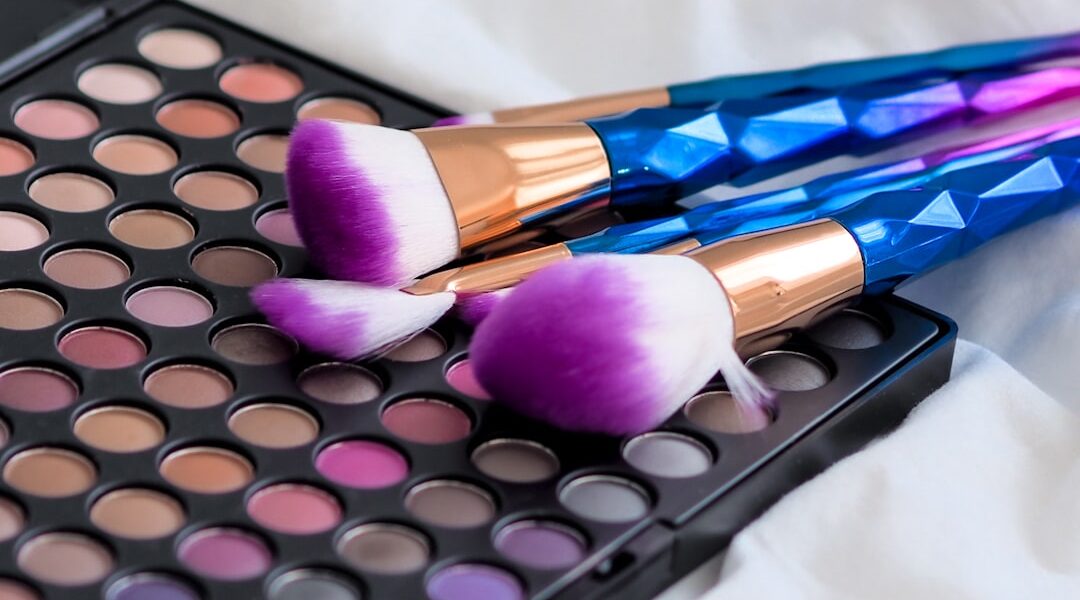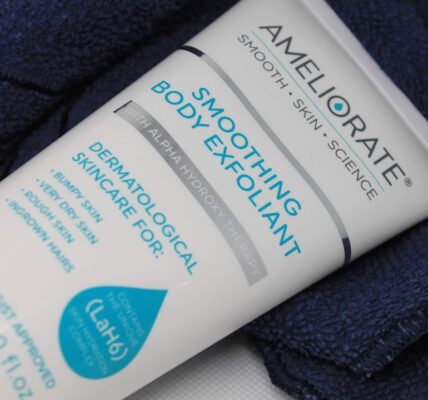Understanding skin types is essential for developing an effective skincare routine. There are four main skin types: normal, oily, dry, and combination. Normal skin is characterized by a balanced complexion with small pores and smooth texture.
Oily skin produces excess sebum, resulting in a shiny appearance and enlarged pores. Dry skin lacks moisture and may feel tight or flaky. Combination skin features an oily T-zone (forehead, nose, and chin) with dry cheeks.
Identifying one’s skin type is crucial for selecting appropriate products and treatments. For instance, individuals with oily skin should opt for oil-free or non-comedogenic products to prevent pore clogging. Those with dry skin should focus on hydrating and nourishing products to replenish moisture.
Tailoring a skincare routine to one’s specific skin type helps address unique concerns and improve overall skin health and appearance. By understanding their skin type, individuals can make informed decisions about product selection and effectively target their skincare needs. This knowledge is fundamental in achieving a healthy and radiant complexion, regardless of whether one has oily skin requiring oil control or dry skin needing extra hydration.
Key Takeaways
- Understanding your skin type is crucial for choosing the right skincare products and treatments.
- Cleansing and exfoliating are essential steps in maintaining healthy and clear skin.
- Choosing the right moisturizer for your skin type can help keep your skin hydrated and balanced.
- Sun protection is important for preventing premature aging and reducing the risk of skin cancer.
- Incorporating serums and treatments can target specific skin concerns and improve overall skin health.
- Establishing a consistent skincare routine is key to seeing results and maintaining healthy skin.
- Seeking professional advice from a dermatologist or skincare specialist can help address specific skin concerns and provide personalized recommendations.
Cleansing and Exfoliating
Cleansing and exfoliating are essential steps in any skincare routine. Cleansing helps remove dirt, oil, and impurities from the skin’s surface, while exfoliating helps slough off dead skin cells to reveal a smoother, brighter complexion. When choosing a cleanser, it’s important to consider your skin type and any specific concerns you may have.
For example, if you have oily or acne-prone skin, you may want to look for a foaming or salicylic acid-based cleanser to help control excess oil and prevent breakouts. If you have dry or sensitive skin, a gentle, hydrating cleanser may be more suitable. Exfoliating is also an important step in maintaining healthy skin.
There are two main types of exfoliation: physical and chemical. Physical exfoliants use abrasive particles or tools to manually slough off dead skin cells, while chemical exfoliants use acids or enzymes to dissolve the bonds between skin cells. Again, it’s important to consider your skin type when choosing an exfoliant.
Those with sensitive skin may want to opt for a gentle chemical exfoliant, while those with oily or thicker skin may benefit from a stronger physical exfoliant. Incorporating both cleansing and exfoliating into your skincare routine will help keep your skin clean, smooth, and free of congestion. Cleansing and exfoliating are crucial steps in any skincare routine.
Cleansing helps remove dirt, oil, and impurities from the skin’s surface, while exfoliating helps slough off dead skin cells to reveal a smoother, brighter complexion. When choosing a cleanser, it’s important to consider your skin type and any specific concerns you may have. For example, if you have oily or acne-prone skin, you may want to look for a foaming or salicylic acid-based cleanser to help control excess oil and prevent breakouts.
If you have dry or sensitive skin, a gentle, hydrating cleanser may be more suitable. Exfoliating is also an important step in maintaining healthy skin. There are two main types of exfoliation: physical and chemical.
Physical exfoliants use abrasive particles or tools to manually slough off dead skin cells, while chemical exfoliants use acids or enzymes to dissolve the bonds between skin cells. Again, it’s important to consider your skin type when choosing an exfoliant. Those with sensitive skin may want to opt for a gentle chemical exfoliant, while those with oily or thicker skin may benefit from a stronger physical exfoliant.
Incorporating both cleansing and exfoliating into your skincare routine will help keep your skin clean, smooth, and free of congestion.
Choosing the Right Moisturizer

Moisturizing is an essential step in any skincare routine, regardless of your skin type. A good moisturizer helps hydrate the skin, strengthen its natural barrier, and prevent moisture loss. When choosing a moisturizer, it’s important to consider your skin type and any specific concerns you may have.
For example, if you have oily or acne-prone skin, you may want to look for a lightweight, oil-free moisturizer that won’t clog your pores. If you have dry or sensitive skin, a richer, more emollient moisturizer may be more suitable to provide the extra hydration and nourishment your skin needs. In addition to considering your skin type, it’s also important to look for key ingredients that can benefit your specific concerns.
For example, hyaluronic acid is a great ingredient for all skin types as it helps attract and retain moisture in the skin. Those with sensitive or irritated skin may benefit from moisturizers containing soothing ingredients like aloe vera or chamomile. If you have mature or sun-damaged skin, look for moisturizers with antioxidants like vitamin C or E to help protect against environmental damage.
Choosing the right moisturizer for your skin type and concerns will help keep your skin hydrated, balanced, and healthy. Moisturizing is an essential step in any skincare routine, regardless of your skin type. A good moisturizer helps hydrate the skin, strengthen its natural barrier, and prevent moisture loss.
When choosing a moisturizer, it’s important to consider your skin type and any specific concerns you may have. For example, if you have oily or acne-prone skin, you may want to look for a lightweight, oil-free moisturizer that won’t clog your pores. If you have dry or sensitive skin, a richer, more emollient moisturizer may be more suitable to provide the extra hydration and nourishment your skin needs.
In addition to considering your skin type, it’s also important to look for key ingredients that can benefit your specific concerns. For example, hyaluronic acid is a great ingredient for all skin types as it helps attract and retain moisture in the skin. Those with sensitive or irritated skin may benefit from moisturizers containing soothing ingredients like aloe vera or chamomile.
If you have mature or sun-damaged skin, look for moisturizers with antioxidants like vitamin C or E to help protect against environmental damage. Choosing the right moisturizer for your skin type and concerns will help keep your skin hydrated, balanced, and healthy.
Sun Protection
| Product | SPF | Water Resistant | Price |
|---|---|---|---|
| Sunscreen lotion | 30 | Yes | 10.99 |
| Sunscreen spray | 50 | No | 15.99 |
| Sun hat | N/A | N/A | 25.00 |
Sun protection is one of the most important steps in any skincare routine. Exposure to UV rays can lead to premature aging, sun damage, and an increased risk of skin cancer. It’s crucial to protect your skin from the sun’s harmful rays by using sunscreen every day, even on cloudy or overcast days.
When choosing a sunscreen, look for a broad-spectrum formula that protects against both UVA and UVB rays with an SPF of 30 or higher. In addition to using sunscreen, it’s also important to seek shade during peak sun hours (10am-4pm), wear protective clothing like hats and sunglasses, and avoid tanning beds. Sun protection is essential for all skin types and concerns, as UV damage can affect everyone regardless of their complexion or age.
By incorporating sun protection into your daily routine, you can help prevent sun damage and maintain healthy, youthful-looking skin for years to come. Sun protection is one of the most important steps in any skincare routine. Exposure to UV rays can lead to premature aging, sun damage, and an increased risk of skin cancer.
It’s crucial to protect your skin from the sun’s harmful rays by using sunscreen every day, even on cloudy or overcast days. When choosing a sunscreen, look for a broad-spectrum formula that protects against both UVA and UVB rays with an SPF of 30 or higher. In addition to using sunscreen, it’s also important to seek shade during peak sun hours (10am-4pm), wear protective clothing like hats and sunglasses, and avoid tanning beds.
Sun protection is essential for all skin types and concerns, as UV damage can affect everyone regardless of their complexion or age. By incorporating sun protection into your daily routine, you can help prevent sun damage and maintain healthy, youthful-looking skin for years to come.
Incorporating Serums and Treatments
Incorporating serums and treatments into your skincare routine can help target specific concerns like aging, hyperpigmentation, acne, or dehydration. Serums are lightweight formulations that contain high concentrations of active ingredients like antioxidants, vitamins, peptides, or hyaluronic acid. They are designed to penetrate deeper into the skin to deliver potent ingredients that can address specific concerns.
When choosing a serum or treatment, it’s important to consider your individual needs and concerns. For example, if you’re looking to address signs of aging like fine lines and wrinkles, look for serums containing retinol or vitamin C to help boost collagen production and brighten the complexion. If you’re dealing with hyperpigmentation or dark spots, consider using serums with ingredients like niacinamide or kojic acid to help even out the skin tone.
Incorporating serums and treatments into your skincare routine can help target specific concerns like aging, hyperpigmentation, acne, or dehydration. Serums are lightweight formulations that contain high concentrations of active ingredients like antioxidants, vitamins, peptides, or hyaluronic acid. They are designed to penetrate deeper into the skin to deliver potent ingredients that can address specific concerns.
When choosing a serum or treatment, it’s important to consider your individual needs and concerns. For example, if you’re looking to address signs of aging like fine lines and wrinkles, look for serums containing retinol or vitamin C to help boost collagen production and brighten the complexion. If you’re dealing with hyperpigmentation or dark spots, consider using serums with ingredients like niacinamide or kojic acid to help even out the skin tone.
Establishing a Consistent Routine

Establishing a consistent skincare routine is key to maintaining healthy and radiant-looking skin. Consistency is important because it allows time for products to work effectively and produce visible results. A basic skincare routine should include cleansing twice daily (morning and night), followed by moisturizing and applying sunscreen during the day.
In the evening, it’s also beneficial to incorporate treatments like serums or retinoids after cleansing but before moisturizing. Consistency is key when using these products as they often require regular use over time to see improvements in the skin’s texture and appearance. By establishing a consistent routine that includes cleansing, moisturizing, sun protection, and targeted treatments as needed, you can help maintain the health and appearance of your skin over time.
Establishing a consistent skincare routine is key to maintaining healthy and radiant-looking skin. Consistency is important because it allows time for products to work effectively and produce visible results. A basic skincare routine should include cleansing twice daily (morning and night), followed by moisturizing and applying sunscreen during the day.
In the evening, it’s also beneficial to incorporate treatments like serums or retinoids after cleansing but before moisturizing. Consistency is key when using these products as they often require regular use over time to see improvements in the skin’s texture and appearance. By establishing a consistent routine that includes cleansing, moisturizing, sun protection, and targeted treatments as needed, you can help maintain the health and appearance of your skin over time.
Seeking Professional Advice
While establishing a basic skincare routine at home is important for maintaining healthy skin, seeking professional advice from a dermatologist or skincare specialist can provide valuable insights into addressing specific concerns or conditions. A professional can assess your individual needs and recommend personalized treatments or products that are best suited for your unique concerns. In addition to seeking professional advice for specific concerns like acne or rosacea, regular check-ups with a dermatologist can also help monitor changes in the skin over time and catch any potential issues early on.
Professional treatments like chemical peels or laser therapy can also provide more targeted solutions for concerns like hyperpigmentation or scarring that may not be effectively addressed with at-home products alone. While establishing a basic skincare routine at home is important for maintaining healthy skin, seeking professional advice from a dermatologist or skincare specialist can provide valuable insights into addressing specific concerns or conditions. A professional can assess your individual needs and recommend personalized treatments or products that are best suited for your unique concerns.
In addition to seeking professional advice for specific concerns like acne or rosacea, regular check-ups with a dermatologist can also help monitor changes in the skin over time and catch any potential issues early on. Professional treatments like chemical peels or laser therapy can also provide more targeted solutions for concerns like hyperpigmentation or scarring that may not be effectively addressed with at-home products alone. In conclusion…
Understanding your unique skincare needs based on your individual skin type is crucial in developing an effective skincare routine that addresses specific concerns while maintaining overall health and radiance of the complexion.
Cleansing twice daily followed by exfoliating 2-3 times per week helps maintain clean pores while promoting cell turnover.
Choosing the right moisturizer based on individual needs such as hydration level is essential in maintaining balanced moisture levels.
Sun protection through daily use of broad-spectrum sunscreen with SPF 30+ helps prevent premature aging caused by UV exposure.
Incorporating serums containing active ingredients such as antioxidants helps target specific concerns such as aging signs.
Establishing a consistent skincare routine including cleansing twice daily followed by moisturizing helps maintain healthy-looking complexion.
Seeking professional advice from dermatologists provides valuable insights into addressing specific concerns while monitoring changes in the complexion over time.
By following these steps consistently while seeking professional advice when needed will help maintain healthy-looking complexion over time.
If you’re looking to revamp your skincare routine, you might want to check out this article on Glamour Garrison’s website “10 Steps to the Ultimate Skincare Routine”. This article provides a comprehensive guide on how to build a skincare routine that works for your specific skin type and concerns. It covers everything from cleansing and exfoliating to moisturizing and using serums, making it a valuable resource for anyone looking to improve their skincare regimen.
FAQs
What is a skincare routine?
A skincare routine is a series of steps and products used to take care of the skin on a regular basis. It typically includes cleansing, exfoliating, toning, moisturizing, and applying sunscreen.
Why is a skincare routine important?
A skincare routine is important for maintaining healthy and radiant skin. It helps to remove dirt, oil, and impurities, while also providing hydration and protection from environmental damage.
How often should a skincare routine be done?
A basic skincare routine should be done twice a day, in the morning and evening. However, some steps such as exfoliating and using masks may only need to be done a few times a week.
What are the essential steps in a skincare routine?
The essential steps in a skincare routine include cleansing, exfoliating, toning, moisturizing, and applying sunscreen. These steps help to keep the skin clean, hydrated, and protected.
What products should be included in a skincare routine?
A skincare routine should include a gentle cleanser, exfoliant, toner, moisturizer, and sunscreen. Additional products such as serums, masks, and eye creams can also be incorporated based on individual skin concerns.
How do I choose the right skincare products for my skin type?
It’s important to choose skincare products based on your specific skin type (dry, oily, combination, sensitive) and any specific skin concerns (acne, aging, hyperpigmentation). Consulting with a dermatologist or skincare professional can help in selecting the right products.




